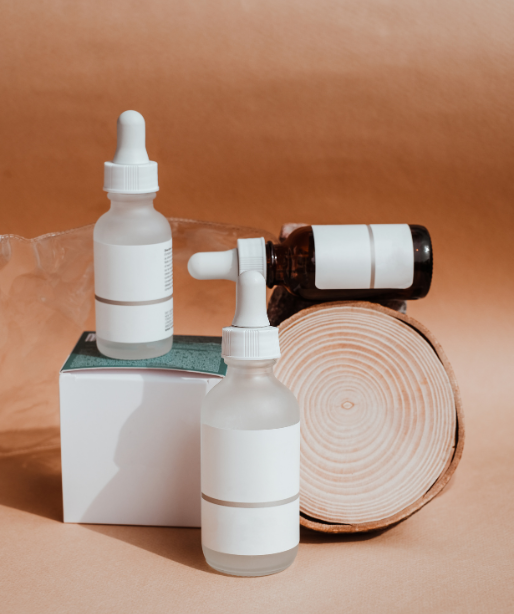
Why Incorporate Skin Care in Your Practice & How to Do It Effectively
Posted on April 24, 2023
As a provider, owner, or administrator at your aesthetic practice, you already know the importance of helping your patients look and feel their best. However, did you know that incorporating skin care into your practice can have numerous benefits for both your patients and your business? By selling skin care products, you can improve patient satisfaction and loyalty, while also generating additional revenue streams. In this post, we’ll explore why you need to incorporate skin care in your aesthetic practice and how to do it effectively.
Why Consider Skincare Business?
By selling skin care products, you are tapping into a growing market that is constantly seeking new and innovative products to improve their skin health. With the rise of social media and influencers, the demand for skin care has only increased, and it is projected to continue growing in the coming years.
By providing quality products that meet the needs of your patients, you can establish a loyal patient base that will keep coming back for more. This translates to increased revenue and profitability for your business, without the need for expensive procedures or additional resources. Ultimately, being in the skin care business is a smart investment in a lucrative industry that shows no signs of slowing down.
What are the Margins for Selling Retail Skincare?
When it comes to selling retail skincare, the margins you can expect to achieve can be up to 50% at their best. This is calculated based on a simple formula where you buy a product for a certain amount and then sell it for a higher price. For instance, if you purchase a product for a dollar and then sell it for $2, you have a 100% markup with a 50% net margin. However, it’s important to note that the profit is only 50 cents on the dollar, despite having a 100% markup. If you sell the product for more than double the markup, your net margin and profit will be even higher.
Choosing the Right Skincare Products for Your Aesthetic Practice: Factors to Consider with Your Patient Base
When it comes to choosing which products to carry in your aesthetic practice, consider factors such as your patient demographics (e.g., gender, age), the type of practice you run, whether it’s a med spa or a plastic surgery practice and which are the most treated conditions in your office. Your geographic location can also play a role in determining which products are most popular among your patients as you’ll want to consider weather conditions that can affect your patients’ skin.
Once you’ve identified the skincare products you’d like to carry, you can then decide whether you want to create your own customized private label products or sell name-brand/retail products. Which we’re going to touch on next.
Private Label vs Retail Products: Which is Best for Your Aesthetic Practice?
Deciding whether to sell retail products vs private label skin care products, is a decision that can greatly impact your practice. While retail products such as name brand products have a higher retail and wholesale cost which you can markup for higher revenue, private label products can promote your practice and provide a more unique experience for patients. Private label products allow you to showcase your brand and create a loyal patient base.
One effective way to promote your business is through selling private label products that bear your logo, website and phone number. By providing patients with these items, they will be reminded of your business every time they use them, regardless of whether they are at home or on the go. Additionally, offering travel sizes of your products can be a profitable strategy as they are convenient for patients and can be easily taken on the go.
It’s important to note that a mixture of retail and private label products can be highly beneficial for your practice!
Retail Skincare: Carry Inventory or Have an Online Store?
When it comes to how you want to sell retail skincare products and have patients access them, you have a couple of options to consider. The first option is to carry inventory in your office and the second is to have an online store.
If your practice’s physical location has enough space, carrying inventory and displaying the products is a great choice. However, you need to consider that you’ll always need to buy the products in order to display them, and this can increase your capital expenses. To minimize expenses, ensure to buy the minimum quantity allotted.
On the other hand, using an online store allows you to not have to purchase the products since there is no physical display. The manufacturer of the product would take charge of storage or warehousing of the products and handle the shipping to your patients. Nonetheless, you may not yield as high of profits since the manufacturer would withhold some of the money from your sales. Ultimately, it’s important to carefully consider the best option for your business and opting for both can be a wonderful idea.
How to Effectively Market Retail Products in the Patient Service Industry
You may be wondering how to effectively market retail products. It’s important to note that even though you primarily provide services and procedures, there is still a significant opportunity to sell retail products to your patients. For instance, if you’re in the surgical business, you may have add-ons such as garments and scar gel for patients who are recovering from procedures like facelifts, breast augmentations or tummy tucks. The scar gel can help minimize scarring, making it a valuable addition to your product line.
Additionally, if you offer procedures that affect the skin’s texture, such as facials or microdermabrasion, it makes sense to sell products that can help improve skin quality. Your patients may experience erratic skin after a procedure, but you have the magic lotion and potion to hydrate and cleanse the skin. By selling these products, you can help your patients maintain their skin quality, which will likely lead to repeat business and positive word-of-mouth marketing.
Selling retail products can be an effective way to boost your revenue, even if you primarily provide services. By offering products that complement your services, you can provide your patients with a more comprehensive experience while increasing your profit margin. Remember, you’re not just in the patient service business, but also in the business of making your patients look and feel their best.
Pros and Cons of the Autoship Business: What You Need to Know
Autoship business refers to a model where a patient purchases a product and receives it on a regular basis, such as every month or every two months, depending on their elected usage. It is a business model that can provide a steady stream of passive income for your practice, as long as the product remains in demand. However, there are pros and cons you need to consider before diving into the autoship business. While it may guarantee revenue stability, relying solely on automated communication can limit the chance for patients to visit your office, explore the range of services you provide, and speak with a member of your practice in person.
On the other hand, patients benefit greatly from the convenience of receiving a product automatically without the hassle of reordering. They also have the option to opt-out of the program if they no longer need the product.
Maximizing Revenue & Patient Experience: Everyone in Your Practice Should Be Responsible for Sales
The responsibility of the sales process should lie with everyone in the practice, from the moment a patient walks in. Effective marketing strategies, such as signage and flyers, can inform patients about new products and services. The use of modern technology, such as monitors and televisions in the waiting and patient rooms, can also promote the practice’s brand and product offerings, signaling to patients that the practice is in the skincare business.
The aesthetician, physician assistant, nurse practitioner, doctor, patient care coordinator and medical assistant can all contribute to the sales process by promoting products to patients and closing sales during consultations, treatments or phone calls. Every opportunity to sell should be seized, as the sale of a product could represent a 100% markup and a 50% margin. Therefore, it’s essential to make skin care sales an integral part of every patient’s visit, maximizing revenue and enhancing the patient experience.
To learn more about cross-selling services in your practice, listen to episode 77 of Shorr Solutions: The Podcast, where our Former Partner, Mara Shorr and CEO and Founder of Goldman Marketing Group, Risa Goldman Luksa, discuss this topic in detail.
Strategies for Incentivizing Staff to Sell Skin Care Products
In order to incentivize your staff to sell skin care products, there are various strategies you can implement. One approach is to create an aggregate pool, where the profit margin from monthly or quarterly sales is divided among all staff members. This creates a collective incentive for everyone in the practice to sell products and contribute to the overall success of the practice.
Another way to incentivize staff members is to offer commission to the provider who performed the service when a patient purchases a skin care product in combination with their treatment. This encourages the provider to recommend and promote products to patients, as they benefit directly from sales. Additionally, staff members who manage your website and online store can also be incentivized through commission or other means, as the online store can provide a convenient way for patients to purchase products and contribute to the overall revenue of the practice.
Ultimately, it’s important to ensure that everyone in the practice has some type of skin in the game, as people are often motivated by the prospect of making money. By incentivizing staff members to sell skin care products, you can not only increase revenue but also improve patient satisfaction and loyalty through providing quality products and solutions to their skin health goals. So, take advantage of these tips and implement effective strategies to enhance your business!
Conclusion
If you want to maximize profit, reduce costs and ultimately thrive in your aesthetic practice, don’t hesitate to reach out to our team of experts for coaching! Schedule a free consult with our award-winning expert, Jay Shorr, to make sure that you’re on the right path to success!
To learn more about how to effectively incorporate skin care in your aesthetic practice, be sure to listen to episode 83 of Shorr Solutions: The Podcast!
Ready to get started and ignite your aesthetic practice’s growth?
Schedule Free ConsultAbout Shorr Solutions:
Shorr Solutions is an award-winning practice management consulting company with offices in South and Central Florida. We work with aesthetic medical practices in all 50 states of the U.S. to help them strengthen the operational, financial, and administrative health of their business. With decades of industry experience, our father-daughter partners, Jay Shorr and Mara Shorr, lead our knowledgeable team of experts to assist practices in the aesthetic medical fields increase efficiency, increase revenue, and decrease their costs.
We let you focus on what you LOVE to do: practice medicine.
Learn About Our Services







